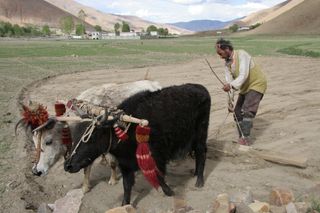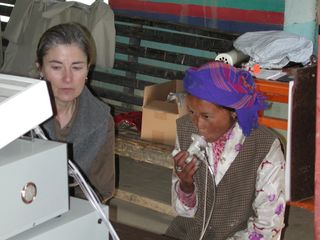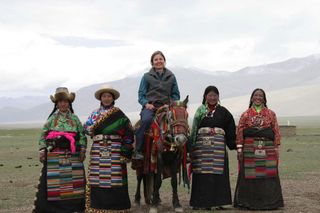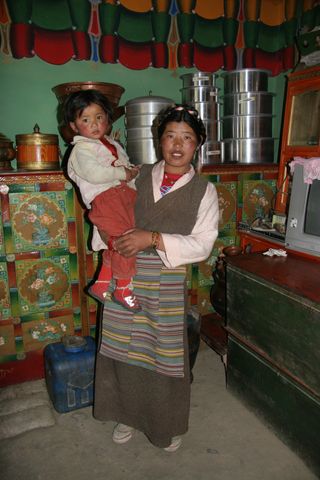Science Diplomacy in High-altitude Tibetan Biology

This ScienceLives article was provided to LiveScience in partnership with the National Science Foundation.
Cynthia Beall is a physical anthropologist whose research focuses on how humans adapt to being oxygen-deprived at high altitudes. High-altitude hypoxia is a physiologically stressful condition that is unavoidable for residents living in some of the world's tallest mountain ranges, such as the Andes, the Himalayas and the Eastern Highlands – a vast mountain range east of Zimbabwe in Africa.

Beall said traditional populations living in those places have no cultural modifications capable of dealing with the condition, but somehow Himalayan Tibetans cope in ways that differ from lowlanders and from other high-altitude populations. Her research suggests Tibetans' abilities possibly result from the past action of natural selection. BBC's Horizon program recently featured her National Science Foundation-supported research in a documentary called "Are We Still Evolving?" Here, Beall answers the ScienceLives 10 Questions.
Name: Cynthia Beall Age: 61 Institution: Case Western Reserve University Field of Study: Physical anthropology
What inspired you to choose this field of study? An undergraduate course introduced me to the field and I was immediately hooked. The field integrates human biology, ecology and evolutionary biology and is fascinating.

What is the best piece of advice you ever received? Take one step at a time.
What was your first scientific experiment as a child? Watching a pot boil.
Sign up for the Live Science daily newsletter now
Get the world’s most fascinating discoveries delivered straight to your inbox.
What is your favorite thing about being a researcher? Discovery.
What is the most important characteristic a researcher must demonstrate in order to be an effective researcher? Perseverance and curiosity are important.
What are the societal benefits of your research? There are science diplomacy type benefits. For example, introducing research to high-altitude communities that have no experience with the concept, and introducing global research to the U.S. academic and scientific community. There are intellectual benefits of understanding the huge range of variation in human biology, and there are health and biology benefits of understanding how healthy people adapt to hypoxia. More than 10 percent of the U.S. population is ill with a disease associated with hypoxia. In these cases, we don't always know how hypoxia is involved or affects the prognosis.

Who has had the most influence on your thinking as a researcher? My dissertation advisor Paul Baker and my colleague Mel Goldstein.
What about your field or being a researcher do you think would surprise people the most? I spend months at a time camping and trekking.
If you could only rescue one thing from your burning office or lab, what would it be? My data.
What music do you play most often in your lab or car? I don't.
Editor's Note: This research was supported by the National Science Foundation (NSF), the federal agency charged with funding basic research and education across all fields of science and engineering. Any opinions, findings, and conclusions or recommendations expressed in this material are those of the author and do not necessarily reflect the views of the National Science Foundation. See the ScienceLives archive.
Most Popular







